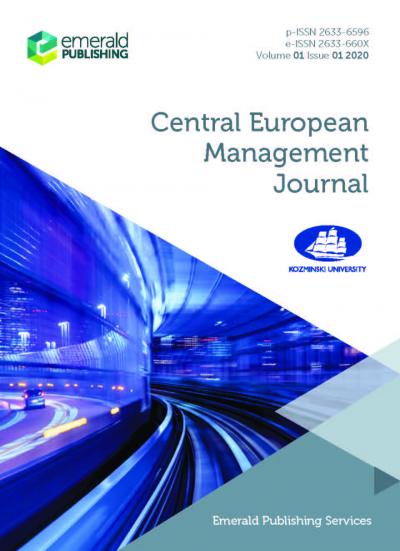Business History in Poland: Current State and Future Potential
Anna Pikos
Kozminski University
Tomasz Olejniczak
Kozminski University
2017 25 (3) Central European Management Journal
DOI 10.7206/jmba.ce.2450-7814.199








